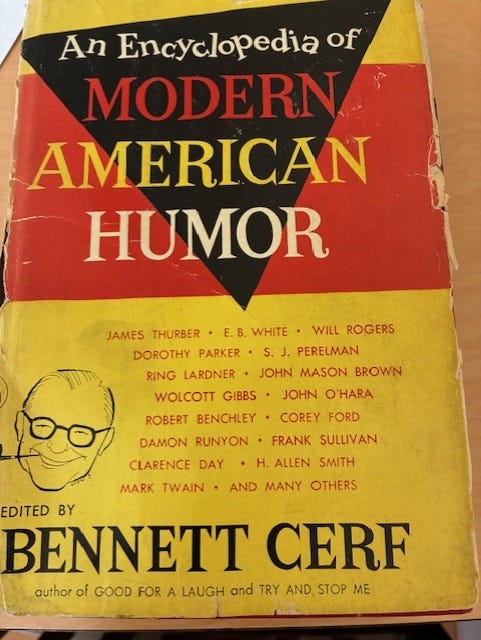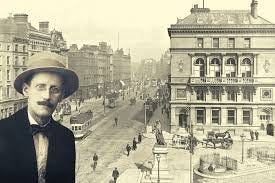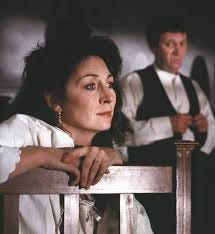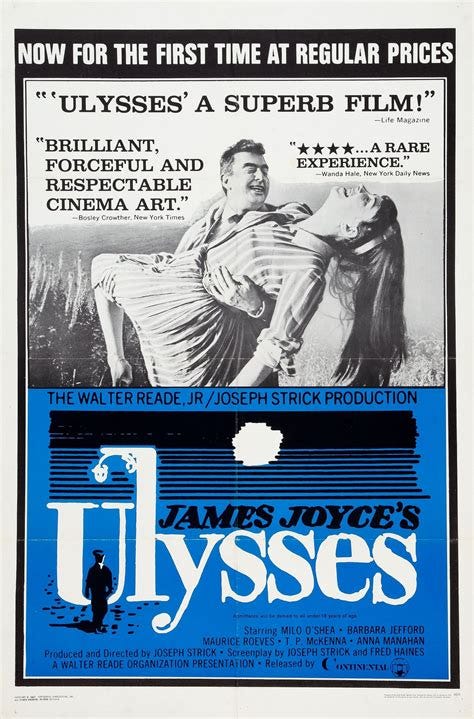How a single judge allowed Ulysses into U.S.
“…his locale was Celtic and his season Spring.” It’s not obscene.
Portland OR. 13 June 2025 - This is a presentation made on June 16, 2017 upstairs at Kells in Downton Portland. Since 1998 the Portland Hibernian Society has been celebrating Bloomsday at Kells. This year we’ll do so on June 19. All are welcome.
Like most of us, Nora Barnacle never read Ulysses cover to cover. Even though her husband wrote it and her first date with James Joyce hovers over everything that happens on June 16, 1904. Bloomsday.
She did read the final chapter and the infamous, lascivious soliloquy delivered by Molly Bloom. After reading it she said, “I guess the man’s a genius, but what a dirty mind he has, doesn't he?”
The day now known worldwide as Bloomsday is celebrated on June 16 because that’s the day James Joyce and Nora Barnacle went on their first date. Aww. He then wrote a very long book based on one day June 16 in Dublin. Nora became his Muse.
Censors didn’t want us to read Ulysses
This is the story of how the work of that dirty mind made America a freer country when it comes to books some found objectionable and would ban if they could.
The legal battle over getting Ulysses published and sold in America was long and drawn out. It began in the summer of 1920, but the groundwork had been laid long before in Victorian England with its codes of appropriate behavior handed down by the Crown and enforced with prudish glee. Customs officials in America wouldn’t allow this obscene book into the country under the tariff laws of the time.
Ultimately, Ulysses was ruled NOT obscene by one Federal judge in New York City. The Honorable John Munro Woolsey of the US District Court of the Southern District of New York in Manhattan wrote his ruling lifting the ban on Ulysses on Thanksgiving night in 1933. It was officially issued on December 6.
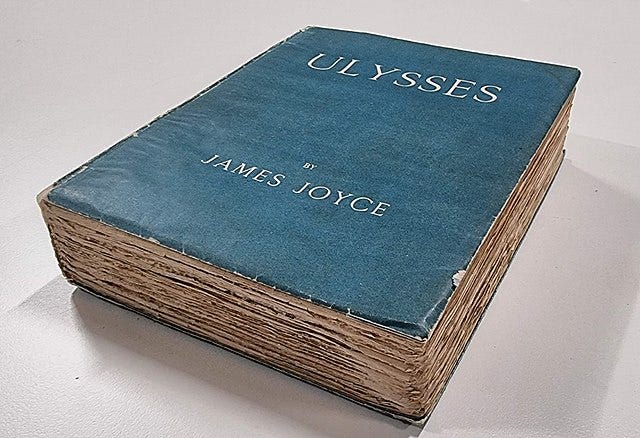
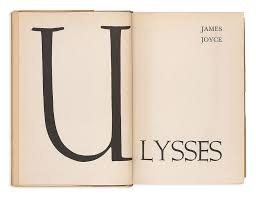
A Random House First Edition. One thousand copies of Ulysses were published in Paris before it was banned and unbanned in America. One of those sold last year for $450,000.
Ulysses is no aphrodisiac
“I hold that Ulysses is a sincere and honest book. The words which are criticized as dirty are old Saxon words known to almost all men and, I venture, to many women, and are such words as would be naturally and habitually used, I believe, by the types of folks whose life, physical and mental, Joyce is seeking to describe,” the Judge wrote.
Judge Woolsey was definitely not one of those types. One of his ancestors was a founder of Yale, from which he graduated. He wore a tie when he played tennis with his wife. His gavel was culled from the hull of the USS Constitution.
“In respect of the recurrent emergence of the theme of sex in the minds of his characters, IT MUST ALWAYS BE REMEMBERED THAT HIS LOCALE WAS CELTIC AND HIS SEASON SPRNG. (Emphasis added.) My considered opinion, after long reflection is that while in many places the effect upon the reader is somewhat emetic, nowhere does it tend to be an aphrodisiac. Ulysses may therefore be admitted into the United States.”
It’s important to note that the question of whether Ulysses was obscene and should be kept out of America’s bookstores wasn’t decided by a jury. Twelve citizens didn’t have to sit through a trial that would have been truly sensational. Instead, Judge Woolsey made the ruling himself. He didn't have to read the entire book that took 22,000 hours to write. He could have just read the passages prosecutors alleged were obscene. But he read the book cover to cover more than once.
Start the presses
Now that the courts had deemed Ulysses safe for American readers, who would publish it?
Bennett Cerf was in the publishing business in the 1920s. He would eventually be better known as one of the panelists on a celebrity quiz show called What’s My Line? He had wanted Random House to publish Ulysses since 1921 when there was a limited printing of the book in Paris. He came up with a scheme to get around the ban that had been placed on Ulysses. A copy of the novel would be shipped over from France. Customs authorities would be told it was coming so they could seize it and force a court case.
There was a problem with this plan, however. When the book arrived in New York the man in charge of Customs refused to confiscate Ulysses. Why? He told one of the attorneys who wanted it stopped, “Oh, everybody brings that in.”
That’s true. Ulysses may have been the most available banned book ever. The prudish powers that be were very serious about banning it but the book had attracted a small army of supporters in Europe and America. It was highly regarded by writers who had read it. One author who was happy to bring copies in illegally under the radar was Ernest Hemingway. He called himself a “booklegger.” (Prohibition ended and the Ulysses ban were lifted in the same week in Dec. 1933.)
Bennett Cerf became a popular television talent on What’s My Line? after a distinguished career publishing some of America’s best writers, humor collections like the one above and James Joyce. (Photo courtesy CBS)
“The law does not require that adult literature be reduced to mush for infants.” Atty Morris Ernst
A best seller is born
Once seized, Ulysses sat on a bureaucrat’s desk for six months before prosecutors finally decided to press the case against it. At trial both sides presented their cases to Judge Woolsey. In one courtroom exchange Judge Woolsey asked the attorney for Random House, Morris Ernst, “If a girl of 18 or 20 were to read the soliloquy of Molly Bloom wouldn’t it corrupt her?” Ernst. “I don’t think that is the standard we should go by. The law does not require that adult literature be reduced to mush for infants.”
The legal battle over Ulysses pitted state power against individual freedom. It went right at the question of the limits of governmental control over speech considered harmful. We’re still fighting that battle.
In the aftermath of the Ulysses obscenity trial, within six weeks as a matter of fact, Ulysses was selling like the latest Stephen King thriller. It sold 12,000 copies pre-publication at $3.50 each (that would be $67 in 2025 dollars); a phenomenal number considering there was a Depression. Within six months sales had reached 33,000 and Joyce, almost totally blind by then and living in Europe, received his first Ulysses royalty check for $7,500 ($180,000 in 2025 dollars).
“A man runs around Dublin all day in June 1904” was the way Joyce described his novel Ulysses.
Still selling
It never won any major literary awards but Ulysses still sells about 100,000 copies a year. If you believe more than a few literary experts, it’s the greatest novel ever written. Since being unbanned it has sold somewhere around 1 million copies in America. There’s another lasting legacy from its battle to publish back in the 1930s as well. Morris Ernst, the attorney for Random House, had taken the case on a contingency basis. If he lost, no payday. If he won, he would receive 5% of the first 10,000 copies sold and 2% of every copy sold thereafter forever. With that seed money and guarantee of continuing income Morris Ernst founded an organization still battling book bans, among other government activities: the American Civil Liberties Union.
Check out Gallagher’s Celtic Corner on June 16 - Bloomsday - for Five Reasons Why Ulysses Isn’t Obscene.
Name the film.
The Dead 1987 - Anjelica Huston starred as Greta Conroy in this adaptation of a story from Dubliners by James Joyce. Her father John directed and her bother Tony wrote the Oscar-nominated screenplay. (The Huston family is worth a post of its own.)
DISCLAIMER - Though I hold a leadership position with the Portland Hibernian Society, any opinions given at Gallagher’s Celtic Corner are strictly those of the author and no one else.
DISCLOSURE - AI was not used in the writing of this post because it was written in 2017 and AI as we know it wasn’t yet a thing.
Available on You Tube.
Post 19






